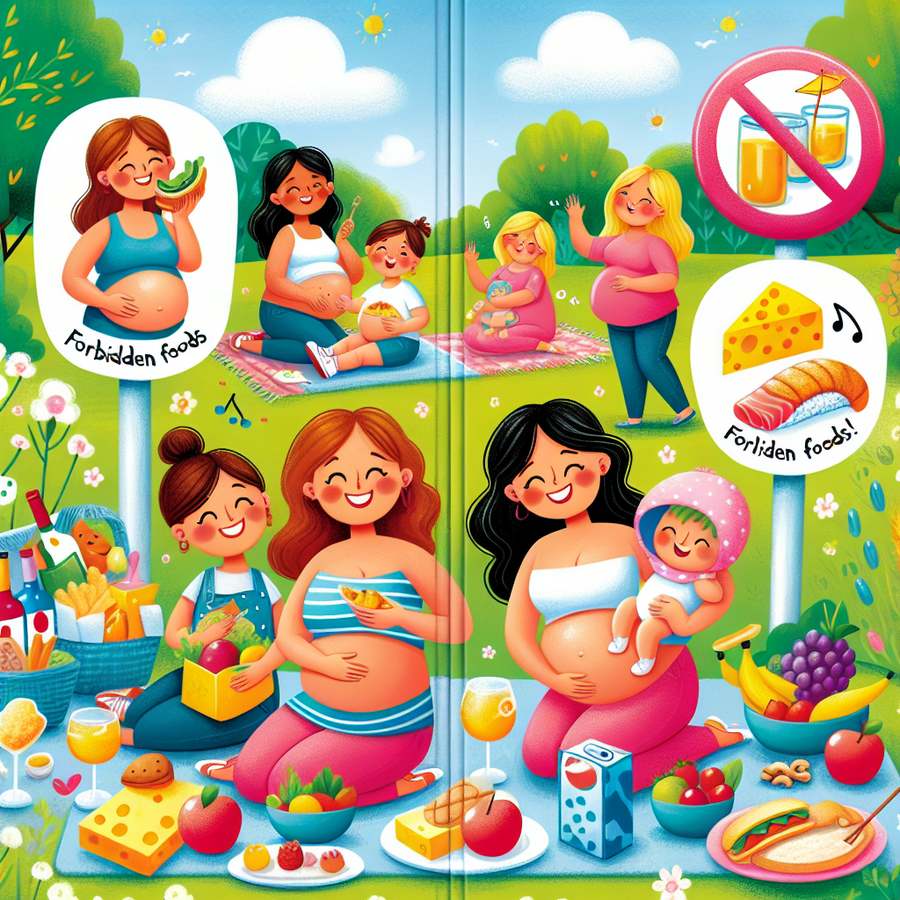Understanding what foods to avoid during the first trimester is crucial for the health and well-being of both the expectant mother and the developing baby. The first trimester is a period of significant growth and development for the fetus, making it essential to optimize maternal nutrition and avoid potential dietary risks.
Key Foods to Avoid During the First Trimester
There are several categories of foods that should be limited or avoided entirely during the first trimester due to their potential to harm the developing fetus or contribute to pregnancy complications. These include certain types of fish, unpasteurized dairy products, and foods that are at a higher risk for contamination.
High-mercury fish such as shark, swordfish, king mackerel, and tilefish should be avoided due to the risk of mercury contamination, which can impact fetal brain development. Similarly, unpasteurized dairy products and soft cheeses can carry Listeria, a bacteria that can lead to miscarriage or stillbirth. Pregnant women are advised to also steer clear of raw or undercooked meats, poultry, and eggs because of the risk of salmonella.
Understanding the Risks: What Foods to Avoid During the First Trimester?
It’s not just about avoiding harmful substances; it’s also crucial to understand why certain foods pose a risk. For example, high levels of vitamin A found in liver and liver products can be harmful during pregnancy, potentially leading to congenital disabilities. Additionally, certain types of fish might be contaminated with polychlorinated biphenyls (PCBs) and dioxins, which can affect the infant’s development.
Another concern is caffeine consumption. Pregnant women are generally advised to limit their caffeine intake to under 200 mg per day, as higher amounts have been linked to an increased risk of miscarriage and low birth weight. This includes not only coffee but also tea, soda, and chocolate.
Practical Tips for Avoiding Harmful Foods in the First Trimester
Maintaining a balanced and safe diet during pregnancy doesn’t have to be a daunting task. Opting for pasteurized dairy products and ensuring that all meats are cooked thoroughly are simple yet effective measures. Pregnant women should also wash fruits and vegetables thoroughly to remove any potential contaminants.
For those craving sushi or other raw delicacies, consider switching to vegetable rolls or fully cooked options. And when it comes to fish, it’s best to opt for lower-mercury options like salmon, cod, and canned light tuna, ensuring a safe and nutritious intake of omega-3 fatty acids critical for fetal development.
Understanding what foods to avoid during the first trimester lays a foundation for a healthy pregnancy journey. For more detailed guides on navigating pregnancy, explore topics like how to cope with morning sickness at 8 weeks, the importance of folic acid in early pregnancy, and safe herbal teas during the second trimester on our website.













